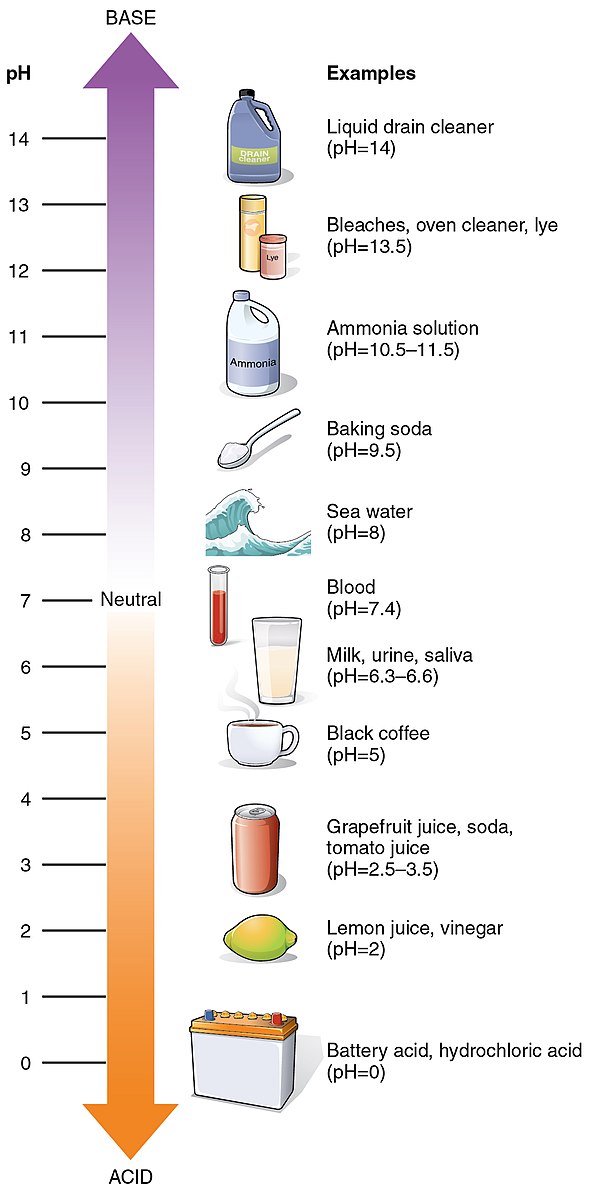The pH of runoff water is a crucial factor to consider, especially for those engaged in DIY gardening or farming. Runoff water, which is the excess water that flows over the surface of the land, can have a significant impact on the health and growth of your plants. Understanding the optimal pH range for runoff water and how to maintain it is essential for ensuring the success of your gardening or farming endeavors.
Understanding the pH Scale
The pH scale ranges from 0 to 14, with 7 being neutral. Values below 7 are considered acidic, while values above 7 are basic or alkaline. For runoff water in soil or soilless mixes like peat moss, the ideal pH range is between 6.0 and 6.5. However, any pH close to this range will be acceptable.
Importance of Maintaining the Ideal pH Range
 Image source: OpenStax College
Image source: OpenStax College
If the pH of your runoff water deviates more than 1.0 from the ideal range, it can be a sign that your plants are outside the acceptable ranges of nutrient uptake. For instance, a pH of 5.8 in runoff water may indicate a buildup of salts in the soil, which can negatively affect plant growth. In such cases, it’s recommended to add water with a pH of 6.8 to 6.5 to optimize the output pH to 6.5 to 6.2.
Factors Affecting the pH of Runoff Water
Contaminants, chemicals, and substances present in runoff water can affect its pH. Acid runoff from mining and smelting operations or fossil fuel combustion can lower the pH of water, making it acidic. Wastewater discharge that contains detergents and soap-based products can cause a water source to become too basic. Therefore, it’s crucial to test the pH of runoff water regularly to ensure that it’s within the acceptable range for your plants.
Testing and Balancing the pH of Runoff Water
To test the pH of your runoff water, you can use a digital pH meter or pH test strips. These tools will provide you with a precise reading of the pH level, allowing you to determine if any adjustments are necessary.
If the pH of your runoff water is outside the ideal range, you can use dolomitic lime as a top dressing to balance it. Add about 1 tbsp of dolomitic lime per gallon of water for the next few waterings. This will help replenish the buffer in your soil and stabilize the pH.
Additionally, ensuring that you have a good amount of runoff when watering can help flush some of the salts and contaminants from the bottom of the pot or growing medium.
Monitoring Runoff Water pH: A Crucial Step for Healthy Plants
Maintaining the ideal pH range of 6.0 to 6.5 in runoff water is crucial for healthy plant growth. Regular testing and balancing of the pH level can help ensure that your plants are getting the nutrients they need and prevent the negative effects of acidic or basic runoff water.
By understanding the importance of monitoring the pH of runoff water and taking the necessary steps to maintain it within the optimal range, you can create a thriving garden or farm that produces healthy, vibrant plants.
